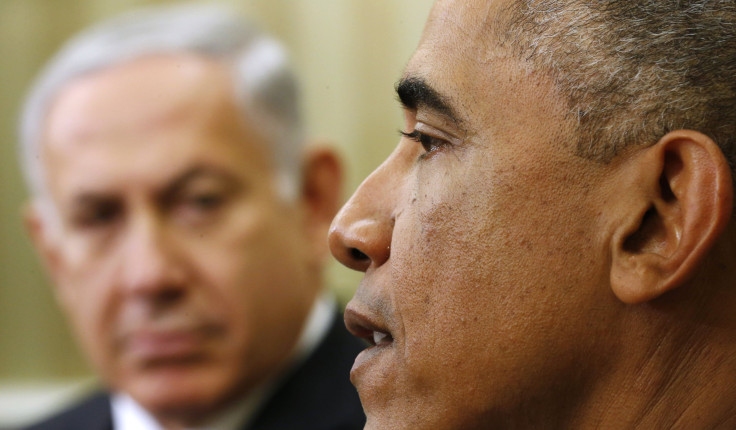Israel Risks Losing ‘Credibility’ Over Palestine Issue, Obama Tells Israeli TV

Israel is losing its “credibility” on the Palestine issue because it's not serious about a two-state solution, U.S. President Barack Obama reportedly said Tuesday, in an interview with Channel 2, an Israeli news network. Obama's comments are being viewed as a sharp retort to Prime Minister Benjamin Netanyahu’s stance on the Palestinian state.
Netanyahu, while campaigning for general elections in March, had said that there would be no establishment of a Palestinian state under his leadership. His comments caused an international furor, prompting him to backtrack on the stance, which Obama reportedly described in the interview as “fairly unequivocal.”
According to Obama, Netanyahu's statement incorporated "so many caveats, so many conditions, that it is not realistic to think that those conditions would be met anytime in the near future,” Agence-France Presse reported, citing the interview. "The danger here is that Israel as a whole loses credibility," Obama reportedly said. “And I think that it is difficult to simply accept at face value the statement made after an election that would appear to look as if this is simply an effort to return to the previous status quo in which we talk about peace in the abstract, but it’s always tomorrow, it’s always later,” he added.
Obama’s views hinted at the possibility that the U.S. would give a nod to a United Nations vote on the issue of a Palestinian state, reported The Los Angeles Times.
The American president also rejected a notion that the issue had strained his relationship with Netanyahu despite having criticized the latter for addressing the U.S. Congress before Israel's elections, Haaretz reported.
After Obama’s interview aired, Israel's Government Secretariat reportedly told the country's cabinet ministers and deputy ministers not to interact with the media or comment on his views.
In May, Israel’s new deputy foreign minister Tzipi Hotovely said that Israel does not owe an apology for its policies in the Holy Land and cited religious texts to show it belonged to the Jewish people. "This land is ours. All of it is ours. We did not come here to apologize for that," she had said at the time.
© Copyright IBTimes 2025. All rights reserved.






















